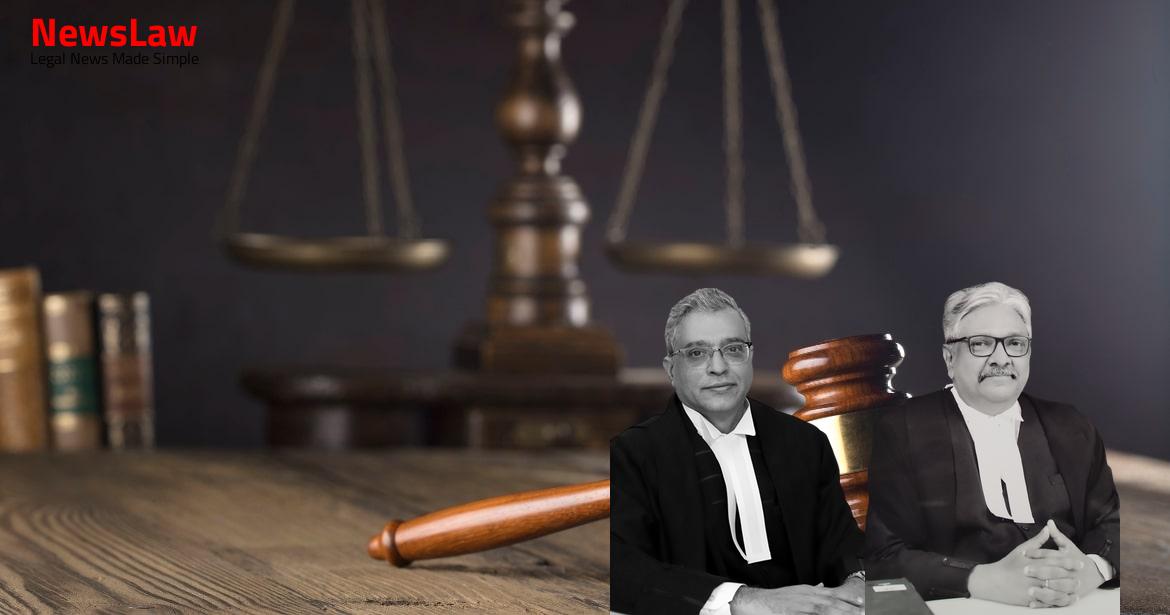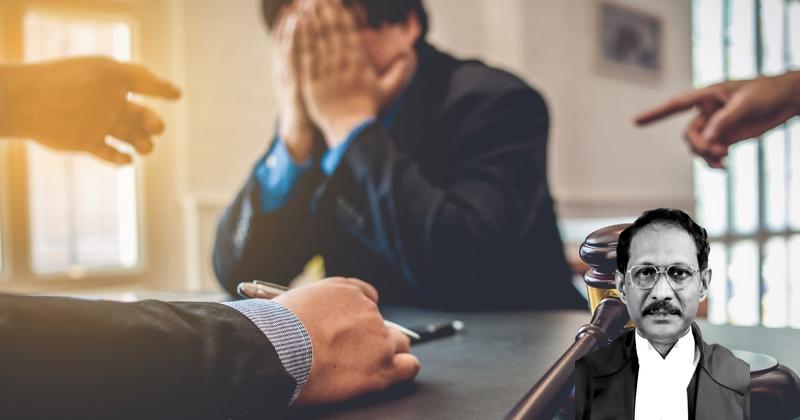Explore the court’s in-depth legal analysis of the promotion process in a recent case, shedding light on the intricate scrutiny involved in promotions to Head Constable positions. Understand the discretionary powers of authorities in approving promotions and the significance of the Departmental Promotion Committee in ensuring fairness and merit-based selection. Follow along as we uncover the nuances of the judicial review process focused on decision-making processes rather than the decisions themselves.
Facts
- The Appellant’s name was recommended by the SP for promotion in 2004 under the outstanding performance quota.
- His name was dropped by the IG when only 7 out of 9 names were forwarded to the CDPC.
- He filed a writ petition in 2011 seeking retrospective promotion.
- He was positioned as a Head Constable under the ORP Policy in 2001.
- In 2007, his name was again forwarded and he was made an Officiating Head Constable in 2008.
- The Appellant claims he should have been promoted in 2004 itself and that the delay to 2008 was illegal and arbitrary.
- The Single Judge dismissed the petition on the ground that selection is not a matter of right.
- The Writ appeal was dismissed by the Division Bench.
- The Civil Appeal arises from the final judgment of the High Court of Punjab and Haryana at Chandigarh.
- The Appellant was appointed as a Constable in 1995.
Also Read: Judicial Analysis on Back Wages in Employee Caste Verification Case
Arguments
- The IG has no power to adjudge the comparative merit in list B-I prepared by the DPC.
- The IG cannot interfere with the recommendation of the SP according to the argument by Shri Surender Kumar Gupta, counsel for the Appellant.
- The IG cannot act as the appellate authority to the decision of the DPC when forwarded by the SP.
- Allegations include that the IG did not provide reasons for the decision and the Appellant was not given an opportunity of a hearing.
- The Appellant claims to be more meritorious than those recommended by the SP and approved by the IG in 2004.
- The Appellant asserts that the decision is arbitrary since the same credentials allowed him to be selected and recommended in 2007.
- Request for retrospective promotion from the year 2004 is made by the Appellant.
- Names recommended by the SP to the CDPC are provisional and subject to ratification by the IG.
- Mere forwarding of the name of the Appellant by the SP does not guarantee a right of promotion.
- Rule 13.7(9) of the Punjab Police Rules, 1934 requires the IG to apply their own judgement, not just forward recommendations.
- Respondents claim that the constables appointed were more qualified than the Appellant.
Also Read: Interpretation of Suspension Rules in Employment Case
Analysis
- Approval of promotions to Head Constable position in Haryana is subjected to a multistage scrutiny process involving the Departmental Promotion Committee (DPC), Inspector General of Police (IG), and the Cadre Controlling Officer.
- The list of candidates recommended by the DPC for promotion to 10% quota must be approved by the IG/DIG before being finalized.
- The IG/DIG has the authority to seek clarifications from the DPC and make corrections to the recommended list if necessary.
- The power of the IG/DIG to approve promotions is discretionary, not mandatory, as clarified by Rule 13.7(9).
- The recommendation by the DPC is not a definitive right to promotion; further scrutiny by the IG/DIG is necessary based on the performance of the candidates each year.
- The selection process for Head Constable positions involves a three-stage scrutiny based on performance and merit criteria.
- The Court’s role in judicial review is focused on the decision-making process rather than the decision itself.
- The Division Bench refrained from delving into individual comparative merit, deferring to the discretion of the authorities involved in the promotion process.
- The approval by the IG/DIG is contingent upon thorough scrutiny of the list according to Rule 13.7(14).
- The process for selecting candidates for the 10% quota is governed by the State Level Comparative Merit List prepared with recommendations from various units.
- The Central Departmental Promotion Committee plays a crucial role in the selection process for the 10% quota, ensuring uniformity and fairness across units.
- Head Constables are selected from a list of Selection Grade Candidates from three sources: direct recruitment, Seniority-cum-merit, and Outstanding performance.
- Rule 13.7 outlines the method of selection for Head Constables, with a 10% quota for candidates selected for admission to courses at the Police Training College.
- List B, maintained by each Superintendent of Police, includes the names of constables selected for the Lower School Course at the Police Training College.
- Promotion among enrolled police officers is regulated through six promotion lists: A, B, C, D, E, and F.
- Appointment of Head Constables is through promotion from selection grade constables in accordance with rules 13.7 and 13.8.
- Lists A, B, C, and D in each district regulate promotion to the selection grade of constables and to the ranks of head constables and assistant sub-inspector as per rules 13.6, 13.7, 13.8, and 13.9.
- Chapter 13 of the Rules lays down the scheme for promotion.
Also Read: Legal Analysis of Assignment and Ratification in Property Law
Case Title: SUSHIL KUMAR Vs. THE STATE OF HARYANA (2022 INSC 67)
Case Number: C.A. No.-000401-000401 / 2022



